I have a state machine with 6 states(3 main states). Only the last state is working but the first 2 doesn't(out of 3).Only the last state is working. I found out the problem, when I remove the debounce circuit it works, but I need the debouncing circuit. I got the debouncing circuit from the internet. I would be glad if someone can help.
type SM_STATES is (state_column_1, scan_col_1, state_column_2, scan_col_2,
state_column_3, scan_col_3);
signal my_state : SM_STATES := state_column_1;
Below is the state machine:
scanner_sm : process (clk)
begin -- process key_scanner
if clk'event and clk = '1' then
if state_inc = '1' then -- clock divider finished counting down 100000
-- reset scan_complete
scan_complete <= '0';
case my_state is
when state_column_1 =>
scanned_val <= (others => '0');
original_col <= "110";
my_state <= scan_col_1;
when scan_col_1 =>
case bcd_val is
when "1110" => scanned_val <= "1100100"; -- 1 wrong
when "1101" => scanned_val <= "1100010"; -- 2 wrong
when others => scanned_val <= "0010000";
end case;
my_state <= state_column_2;
when state_column_2 =>
original_col <= "011";
my_state <= scan_col_2;
when scan_col_2 =>
case bcd_val is
when "1110" => scanned_val <= "1011011"; -- 5 wrong
when "1101" => scanned_val <= "1011111"; -- 6 wrong
when others => scanned_val <= "0000000";
end case;
my_state <= state_column_3;
when state_column_3 =>
original_col <= "101";
my_state <= scan_col_3;
when scan_col_3 => -- Reading S1 // The only working state
case bcd_val is
when "1110" => scanned_val <= "1100000"; -- 9/ 1
when "1101" => scanned_val <= "0111110"; -- X/ 2
when others => scanned_val <= "0000000";
end case;
my_state <= state_column_1; -- ************ Error might be here
scan_complete <= '1'; -- ********** Error might be here
when others => scanned_val <= "0000000";
end case;
end if;
end if;
end process scanner_sm;
debounce: process (CLK) is
begin
if (CLK'event and CLK = '1') then
Q0 <= scannel_val;
Q1 <= Q0;
Q2 <= Q1;
end if;
end process;
Final_val <= Q0 and Q1 and (not Q2);
end Behavioral;

